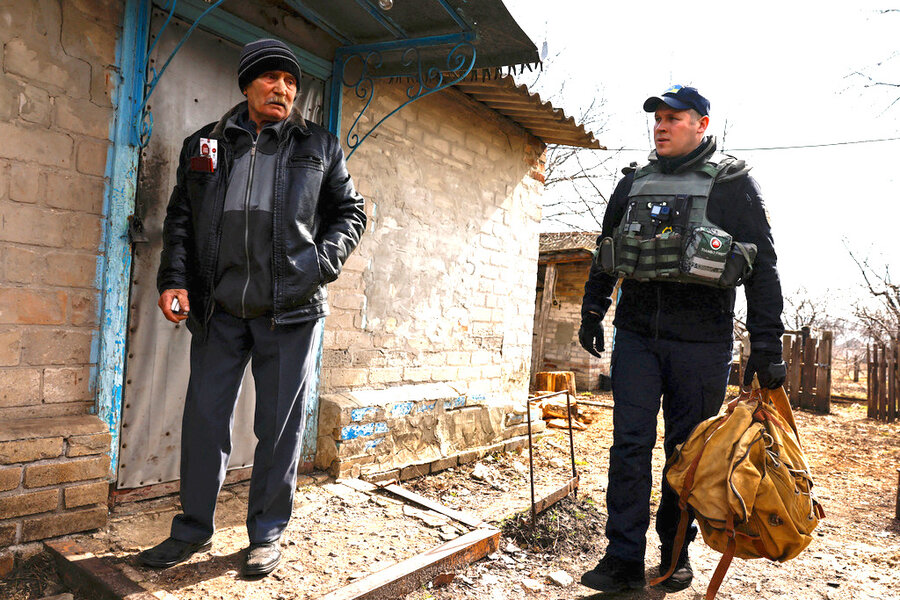Can integrity be taught? Just watch Ukraine.
Loading...
In anticipation of winning the war against Russia, Ukraine signed an agreement last week with the European Union to ensure it would use foreign money for postwar reconstruction with “transparency, accountability, and integrity.” It also promised to set up an “integrity support unit” that would teach best practices in good governance.
Ukraine has already made progress against corruption since a democratic revolution in 2014, mainly in detecting and punishing corrupt officials. Many public records, too, are digitized and open to the public. But can Ukraine now prevent corruption by training government workers to be impartial, fair, and honest?
In a recent visit to the capital, Kristalina Georgieva, managing director of the International Monetary Fund, said Ukrainian authorities and the whole of society are “very determined” to fight corruption. Many of Ukraine’s cities have been designated as “integrity cities” for success against graft.
After the war began over a year ago, “people saw selflessness in others, began to trust more,” Yevhen Holovakha, director of the Institute of Sociology of the National Academy of Sciences of Ukraine, told the news website zn.ua. One poll showed that trust in mass media has grown from 32% to 57%, in part because reporters are seen as crucial in uncovering graft. About 84% of Ukrainians are ready to report corruption compared with 44% before the war.
A culture of personal integrity, in other words, has risen in Ukraine, and now the government wants to promote more of it. Ukrainians are less fatalistic about petty bribery, says Mr. Holovakha. “We have become less of what disgusted us.”
Ukraine’s new emphasis on preventing corruption reflects a global trend to encourage public integrity rather than merely focus on catching the corrupt.
“There have been growing calls for a renewed focus on the central role of values, ethics and integrity in controlling corruption,” states a November 2022 report from Transparency International.
The report warns that legalistic, rules-based measures “do little to create a culture of integrity.” Such measures can also crowd out the intrinsic motivation of individuals to act ethically. Many countries as well as businesses try to encourage integrity by, for example, offering “dilemma training” that poses real-life problems to workers, who are then asked to talk about their moral reasoning. “Integrity is not simply the inverse of corruption but a more expansive concept” of what is right to do, the report states.
Ukraine is about to be a grand experiment in integrity education. Its people have already shown a unity and a grit admired by other countries. Soon it may be known for elevating other virtues that can safeguard a society.







